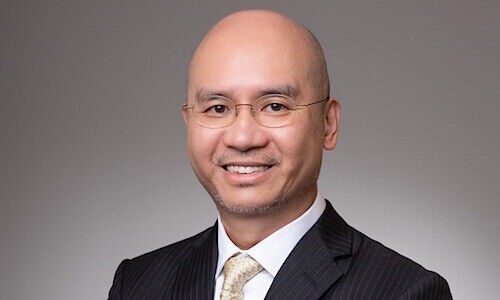Fraudsters are abusing the emerging crypto-currency industry for their purposes. Luka Mueller, a Swiss lawyer specialized in blockchain applications, in an interview with finews.com said that the business will need some carefully crafted regulation to stem the tide.
Luka Mueller, the Swiss financial market regulator Finma last week took action against E-Coin, a digital currency. Were you surprised by the decision of Finma to step in?
Not at all, and Finma is absolutely right to investigate these cases. After all, E-Coins aren’t blockchain-tokens, despite the claims of the providers.
The regulator also investigates a further eleven providers of crypto-currencies. Is this a large proportion of the so-called ICO-market?
The mentioned cases very probably aren’t proper crypto-currencies built as applications on the blockchain, but fake-coins.
«It is difficult to tell how many fake-coins are circulating in Switzerland»
The providers are acting cleverly. They often don’t even use the work blockchain but instead talk about a coin, adding a single letter to the word. There have been cases of fraudulent currencies before. A lot of people thought they were something real that they could earn money with.
Your law firm is advising on initial coin offerings. Are you in any way involved in the investigations by Finma?
No, we wouldn’t ever get involved with such ICOs and the people involved don’t get in touch with us. So far, we’ve only had one case where the token wasn’t a blockchain crypto property.
And that’s also why it is difficult to tell how many such fake-coins are circulating in Switzerland.
Do you think that the Finma investigations against eleven so-called crypto-currencies will put a damper on the ICO-industry?
I think the contrary will be the case. It is an important reminder to the crypto-community, which sometimes seems naïve. Most of the crypto-natives who invest in crypto-currencies know what they are doing.
Are crypto-currencies used for illegal activities?
There’s a potential for abuse with blockchain-based applications, very much as with any technology. That’s the negative way of looking at it. It is important to analyze in detail the part of the technology that is prone to be abused and to take reasonable action against it.
«Customer can’t initiate bitcoin payments to a third party. That way, the risk for money laundering is reduced strongly»
In the regulation, we need to strike a balance between the development of the blockchain technology, the development of applications based upon it and free trade. Many users aren’t interest in illegal business at all.
How is it possible to eliminate illegal activities with crypto-currencies?
In the exchange of blockchain tokens, there are so-called gateways, where the tokens are exchanged into fiat currencies and vice versa. The gateways have to be regulated most stringently and cleanly.
If a bank adopts a crypto-currency, such as for instance Falcon Private Bank and Swissquote, they are subject to the money-laundering regulation. However, Falcon and Swissquote don’t enable transactions, but only manage bitcoin in the sense of an investment.
The trade of bitcoin only takes place between customer, bank and broker. The customer can’t initiate bitcoin payments to a third party. That way, the risk for money laundering is reduced strongly.
Digital wallets are anonymous and as such are the basis for illegal business.
The owners of digital crypto-coin wallets may be anonymous but there’s a transparency of transactions. You can follow the path of a bitcoin.
It is possible to analyze transactions and to set question marks. In a world with crypto-currencies as a means of payment, each step is transparent. The citizen becomes transparent – which isn't to the liking of everyone.
«Chinese authorities won’t ban ICOs for ever»
Fact is: there will always be crypto-currencies available with which you can trade anonymously. The only way to stop such tokens is to refuse them as means of payment.
China has issued an ICO ban and several central banks have warned about crypto-currencies. Are they right to do so?
These are countries with dictatorial systems. They fear the loss of control through the use of crypto-currencies. We got in touch with the Chinese industry after the ban was put in place. The answers all were to the effect that things wouldn’t pan out quite as intended.
Chinese authorities won’t ban ICOs for ever but will be looking for a solution that generates the biggest return.
Falcon Private Bank and Swissquote offer bitcoin accounts. A good thing?
In future, we will have stocks, licenses, bonds and all sorts of investment products on the blockchain. Therefore, it is an advantage for financial-service institutes to gain experience with the technology from early on.
What system do you need to enable crypto-currency trading? How do you handle compliance? How do you provide wallets for your customers and what security measures do you need? This and further questions require answers.
Luka Mueller is a partner at Zug-based law firm MME. He advises companies on technology matters with a focus on blockchain. He also is an expert for complex compliance cases in money-laundering, anti-corruption and legal-assistance and works as a consultant for compliance firms and organizations.
























